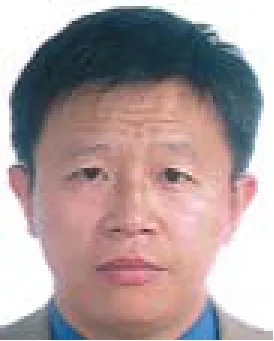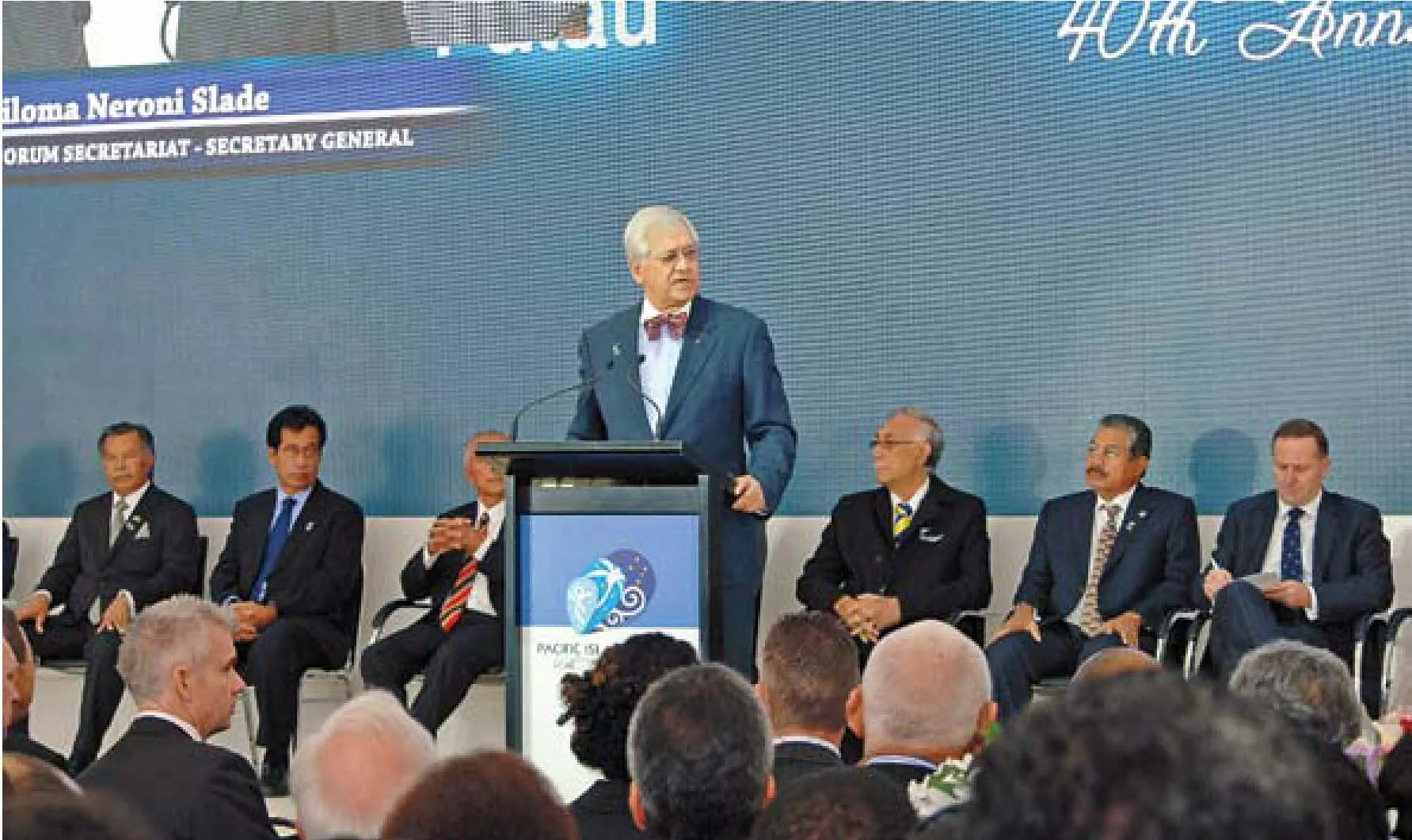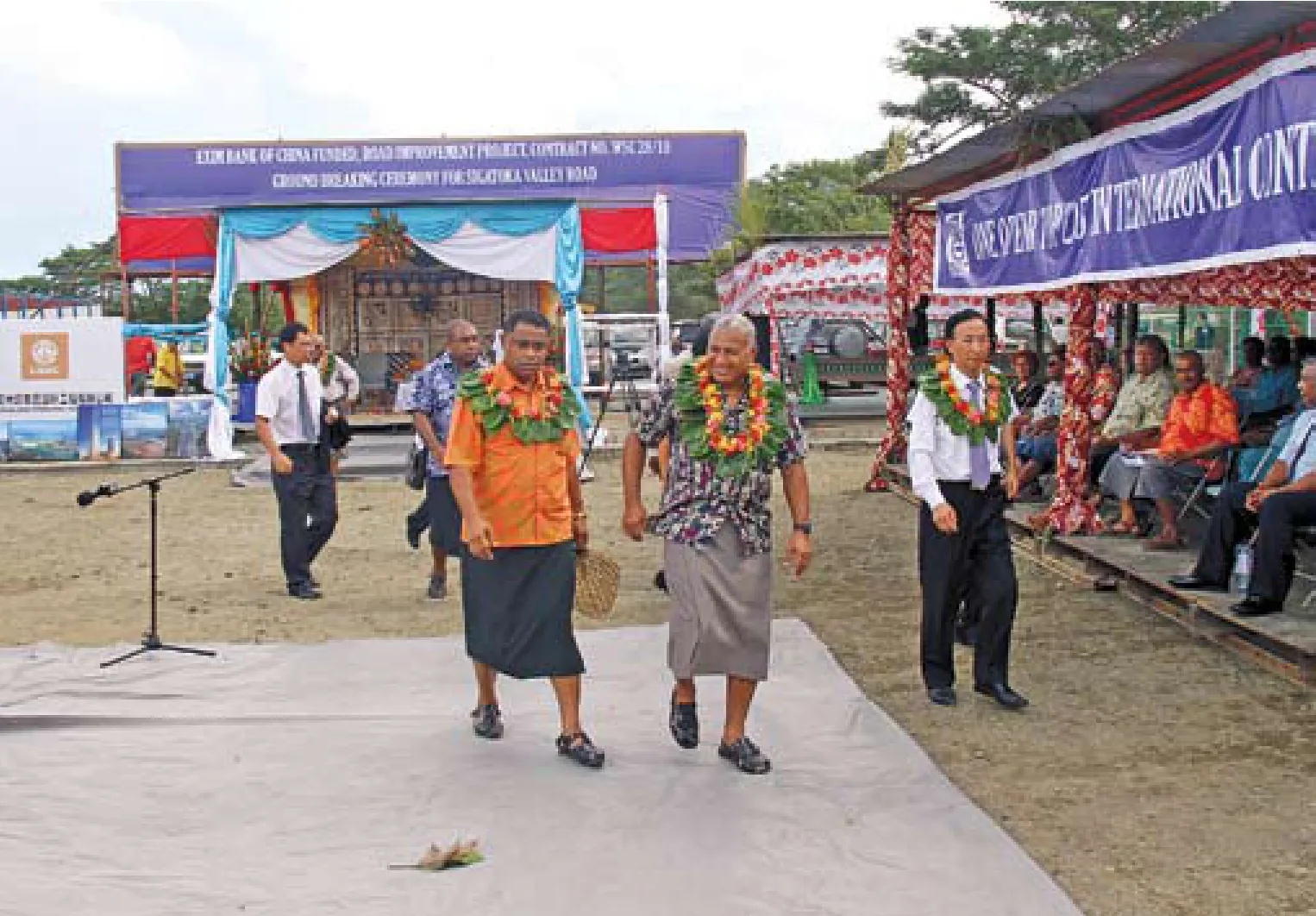Paradise Found
By WANG ZHENYU
Paradise Found
By WANG ZHENYU
China’s cooperation with Pacific island countries bears fruit

China pledges to be a constructive force in the Pacific region and help Pacific island countries achieve sustainable development,said Chinese Vice Foreign Minister Cui Tiankai while attending the Post-Forum Dialogue of the 23rd Paci fi c Islands Forum(PIF) Leaders Meeting in Auckland, New Zealand, in early September.
PIF countries have made remarkable progress in their economic and social development since the forum was established four decades ago. In 2005, PIF leaders adopted the Pacific Plan, which gave a boost to Pacific regional integration and cooperation.
China has always been devoted to building stable relationships with these countries.Chinese Premier Wen Jiabao visited Fiji and attended the First Ministerial Conference of the China-Paci fi c Island Countries Economic Development and Cooperation Forum in April 2006. Visits like this further consolidated these relationships.
Strengthening partnership
China and the PIF have witnessed a strengthening of political mutual trust. Every year, China and Paci fi c island countries conduct exchange of visits among of fi cials above the vice-ministerial level.
This exchange of visits hit a peak in 2010,when all developing island countries in the Paci fi c with diplomatic relations with China sent presidents, prime ministers and other senior of fi cials to China.
These countries attach great importance to relations with China while adhering to the one-China policy. Although some countries,such as Vanuatu and Tonga, experienced changes of governments, their new governments remain committed to strengthened relations with China.
Economic and trade cooperation have also surged. According to official Chinese statistics, the trade volume between China and developing Pacific island countries amounted to $4.16 billion in 2010, up 55.8 percent over the previous year and 15 times that in 2000. Of this fi gure, China’s exports to these nations hit $3.03 billion, up 42.2 percent; and its imports from them hit $1.13 billion, up 100 percent.
Also, China signed construction and labor service contracts worth $580 million with developing island countries in the Paci fi c in 2010. Its non- fi nancial direct investment in these countries amounted to$110 million.
China’s biggest investment project on the islands, the Ramu nickel project in Papua New Guinea by China Metallurgical Group Corp., is about to be completed.China’s Sinopec Group has started building a lique fi ed natural gas terminal in Qingdao,east China’s Shandong Province. The terminal is scheduled to begin operations in November 2013, for receiving liquefied natural gas from Papua New Guinea. In addition, China and Vanuatu have con fi rmed tariff-free treatment for some of Vanuatu’s exports to China.
China has designated seven Pacific island countries as authorized destinations for outbound Chinese travelers. Many Pacific island countries have relaxed their tourist visa policies toward Chinese tourists. The in fl ux of Chinese tourists will undoubtedly become a driving force for the economic growth of these countries.
Mutual assistance
China continues to offer assistance to the region. Every year, there are a number of economic and technical cooperation projects completed and new projects started.
China and Paci fi c island countries’ economic and technical cooperation are based on equality and mutual bene fi t. Though China is a developing country, it has continued to provide assistance to the region within its ability.
China’s assistance is also based on consultation. China respects the island countries’ needs, never imposes its ideas on them or attaches any additional conditions.Recipient governments and people have welcomed Chinese assistance. This assistance serves as a typical example of South-South cooperation.
What’s more, China’s assistance policies are transparent with strict management. In April 2011, the Chinese Government issued a white paper on China’s foreign aid, which made a comprehensive description of aid policies, methods, management mechanisms and international cooperation.
China’s assistance is also practical. Chinese projects meet the needs of the countries.Generally, they are all useful but unaffordable projects for the countries. China aims to carry out measures Chinese Premier Wen Jiabao announced at the UN High-Level Meeting on Millennium Development Goals in 2010, saidCui Tiankai at the Post-Forum Dialogue.
China will focus on infrastructure projects including schools, hospitals, roads and ferries, said Cui. It will also send more agricultural, medical and technical experts to the region, increase the number of local trainees, reduce the debt burden of the least developed island countries, and consider other island countries’ debt moratorium requirements.
These measures will definitely be welcomed by the governments and people of the Paci fi c.
It is worth noting that the Paci fi c island countries have also provided assistance to China in dif fi cult times. In 2010, China suffered several major natural disasters such as a 7.1-magnitude earthquake in Yushu, Qinghai Province, in April and a devastating mudslide in Zhugqu, Gansu Province, in August.Leaders of Paci fi c island countries sent condolences to China following the disasters.Despite its tight budget, Samoa donated more than $50,000 to the Chinese Government.
Wide-ranging cooperation
Pacific islands are particularly prone to devastating effects of climate change. Some of them have clearly felt the threat of rising sea levels, and some suffer from severe natural disasters.
However, most of these countries are remote and underdeveloped. Their ability to deal with climate change is limited. This is why the representatives of Pacific island countries often react fi ercely at international climate change conferences.
China has always supported the reasonable demands of Paci fi c island countries on climate change. In recent years, it has donated to the Pacific Regional Environment Program to support its climate change mitigation projects,and actively participated in climate change conferences hosted by island countries.
China and Pacific island nations have great cooperation potential in developing renewable energy and handling climate change.Pacific island countries are rich in solar,geothermal, wind, biomass and tidal energy.And China has accumulated experience and technical strength in the development of renewable resources.
In April 2010, the China National Committee for Paci fi c Economic Cooperation held a China-Paci fi c Island Countries Forum on Eco-tech Cooperation in Beijing to promote new energy cooperation aimed at dealing with climate change. Ten memoranda of cooperation were produced at the forum.
Just as then Deputy Prime Minister of Vanuatu Sato Kilman said at the forum, the good relationship between China and Paci fi c island countries can lead to fruitful results on climate change projects and technology transfer.
There is reason to believe that climate change will become a highlight of cooperation between China and Pacific island countries.
Over the years, China has actively organized people from the Paci fi c islands to study or attend training in China. It has also sent art troupes to perform in these countries and sent sports coaches as well as medical teams to work there.
In 2010, China established a ConfuciusInstitute, the first in the region, at the University of the South Paci fi c in Suva, Fiji.And China’s Xinhua News Agency established its fi rst branch in the region in Suva,too.
With strengthening political and economic relations between the two sides, especially with more Chinese tourists and entrepreneurs coming to the region, their cooperation in culture, education, sports and public health will keep deepening.
China and developing Pacific countries face the same task of economic development as well as similar challenges in the international arena. China has proved with concrete actions that to promote relations with these countries is its long-term policy.
The author is an assistant research fellow with the China National Committee for Pacific Economic Cooperation

(Left)ISLANDS UNITE:Pacific Islands Forum Secretary General Tuiloma Neroni Slade addresses the opening ceremony of the 42nd Pacific Islands Forum Leaders Meeting in Auckland,New Zealand,on September 7

PRACTICAL PROJECT:Fiji’s Prime Minister Commodore Voreqe Bainimarama (center)attends the groundbreaking ceremony of a China-sponsored road improvement project in Fiji’s Sigatoka Valley on May 27

